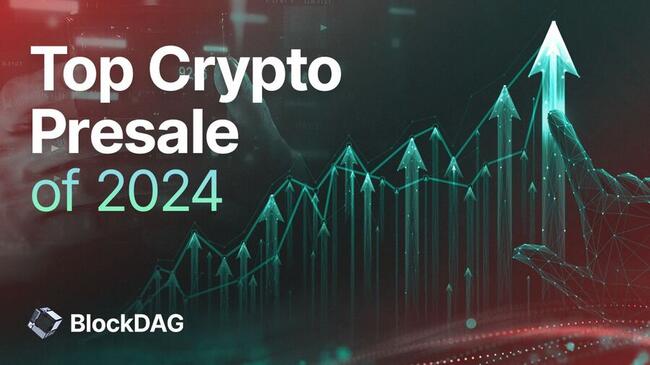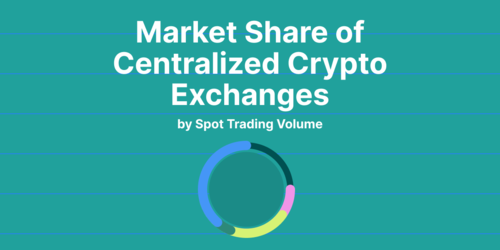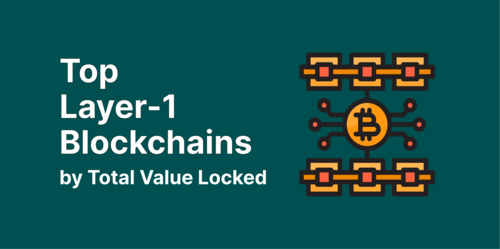BNB
BNB Price
How is the price of BNB (BNB) calculated?
The price of BNB (BNB) is calculated in real-time by aggregating the latest data across 142 exchanges and 513 markets, using a global volume-weighted average formula. Learn more about how crypto prices are calculated on CoinGecko.
BNB Price Chart (BNB)
| 1h | 24h | 7d | 14d | 30d | 1y |
|---|---|---|---|---|---|
| 0.4% | 1.9% | 6.4% | 0.8% | 0.5% | 79.2% |
BNB Converter
|
Market Cap
Market Cap = Current Price x Circulating Supply
Refers to the total market value of a cryptocurrency’s circulating supply. It is similar to the stock market’s measurement of multiplying price per share by shares readily available in the market (not held & locked by insiders, governments) Read More |
$91,268,417,207 |
|---|---|
|
Market Cap / FDV
The proportion of current market capitalization compares to market capitalization when meeting max supply.
The closer the Mkt Cap/FDV to 1, the closer the current market capitalization to its fully diluted valuation and vice versa. Learn more about Mkt Cap/FDV here. |
1.0 |
|
Fully Diluted Valuation
Fully Diluted Valuation (FDV) = Current Price x Total Supply
Fully Diluted Valuation (FDV) is the theoretical market capitalization of a coin if the entirety of its supply is in circulation, based on its current market price. The FDV value is theoretical as increasing the circulating supply of a coin may impact its market price. Also depending on the tokenomics, emission schedule or lock-up period of a coin's supply, it may take a significant time before its entire supply is released into circulation. Learn more about FDV here. |
$91,268,417,207 |
|
24 Hour Trading Vol
A measure of a cryptocurrency trading volume across all tracked platforms in the last 24 hours. This is tracked on a rolling 24-hour basis with no open/closing times.
Read More |
$952,680,108 |
|
Circulating Supply
The amount of coins that are circulating in the market and are tradeable by the public. It is comparable to looking at shares readily available in the market (not held & locked by insiders, governments).
Read More |
153,856,150
The circulating supply is derived from the following formula:
Source:
|
|
Total Supply
The amount of coins that have already been created, minus any coins that have been burned (removed from circulation). It is comparable to outstanding shares in the stock market.
Total Supply = Onchain supply - burned tokens |
153,856,150 |
|
Max Supply
The maximum number of coins coded to exist in the lifetime of the cryptocurrency. It is comparable to the maximum number of issuable shares in the stock market.
Max Supply = Theoretical maximum as coded |
200,000,000 |
BNB Historical Price
| 24h Range | $586.64 – $606.93 |
|---|---|
| 7d Range | $554.72 – $616.97 |
| All-Time High |
$686.31
13.6%
May 10, 2021 (almost 3 years)
|
| All-Time Low |
$0.03982
1489705.3%
Oct 19, 2017 (over 6 years)
|
How do you feel about BNB today?
Recently happened to BNB
What is BNB (BNB)?
BNB (BNB), previously also known as Binance Coin (BNB), is a cryptocurrency coin created and issued by the cryptocurrency exchange Binance. Initially created on the Ethereum blockchain as an ERC-20 token in July 2017, BNB was migrated over to BNB Smart Chain in February 2019 and became the native coin of the Binance Chain.
BNB can be used to pay for fees when trading on Binance, and usually at a discounted rate. Due to the primary utility, BNB has seen massive growth in interest throughout the years . Several rounds of token burn events have appreciated BNB price and pushed it up as one of the top-10 cryptocurrencies by market capitalization.
What is Binance?
Binance is the cryptocurrency exchange founded by Changpeng Zhao and He Yi in July 2017. Binance started with an Initial Coin Offering (ICO) and has since grown into one of the largest global cryptocurrency exchanges, both in terms of volume traded and market share by web traffic. The Binance exchange is separated into the Spot market, Futures market, as well as the decentralized exchange, Binance DEX.
What can you use BNB for?
BNB was initially created as part of the Binance exchange through its ICO. In its whitepaper, Binance states that BNB was designed to be used to pay discounted fees on the Binance platform and also function as the native token powering the Binance Chain.
In addition to the initial use cases, BNB has added other cases both on and outside of the Binance platforms. Here’s an overview of BNB use cases:
-
Reduced Trading Fees - When trading fees on Binance are paid using BNB, users are entitled to a 25% discount in fees.
-
Binance Account Tier - Users with account balances in BNB and 30 days accumulated trading volume above certain thresholds are given VIP tiers with additional fee discounts and perks.
-
Dust Conversion - Users can convert non-tradeable amounts of various cryptocurrencies called dust in their Binance account into BNB.
-
IEO Lottery - Binance’s Initial Exchange Offerings (IEO) are conducted using lottery allocations determined using the amount of BNB held by users.
-
Binance Chain Native Token - Much like how Ether (ETH) is used to pay for fees on the Ethereum Blockchain, BNB is used to pay for fees on the Binance Chain. BNB is needed to trade on the Binance DEX.
-
Spent as Cryptocurrency - In addition to being used on Binance’s platforms, BNB can also be spent for payments in various ways, such as paying for travels, credit card fees, gifts and more. The full list is available here.
There may be more ways to use BNB that have not been covered here, but generally BNB can be used like any other cryptocurrencies to pay for goods and services as long as the merchant accepts it.
BNB (BNB) Burn
BNB (BNB) is designed with token burn in mind to induce scarcity and drive up the value of the token. In its v1.1 whitepaper (archived copy), Binance stated that 20% of Binance’s profits will be used to purchase BNB and subsequently destroyed in every quarter. In 2019, Binance updated its whitepaper to v1.2. In the updated whitepaper, it is stated that BNB burns will now be based on its exchanges’ trading volume.
Since Binance began burning BNB in Oct 2017, 10 rounds of token burns have taken place, with about 16.7 million BNB worth approximately $208 million burned up till January 2020.
Holding and Storing BNB (BNB)
BNB (BNB) is supported by various hardware and software wallet providers. The choice between hardware and software wallets is mostly a balancing act between convenience and security to the user. We’ll provide a quick rundown on them in this section.
Generally, hardware wallets (e.g. Ledger) are non-custodial wallets which keep private keys of a wallet offline and only the owner knows it. This is arguably the safest option for storage as the user has full ownership of the coins, but is likely the least convenient as it requires the user to operate additional hardware to spend/use the cryptocurrency.
Non-custodial software wallets (e.g. Trust Wallet, Atomic Wallet) is the next option in terms of safety compared to hardware wallets, although they are likely more convenient. The private keys are also owned by the user, but since the wallet is kept on an online device (eg. the phone), there is a higher risk of losing the funds as hackers can access devices which are connected to the internet.
Lastly, arguably the most convenient yet risky storage method would be storing funds on custodial wallets (eg. on a centralized exchange such as Binance) as users do not own the private keys to the funds. A hack on the storage location can potentially cause users to lose their funds, much like what happened during the infamous 2014 Mt. Gox hack which recorded a massive loss of 850,000 BTC, most of which are customer funds.
Check out the full list of wallets which supports BNB on Binance’s own updated list here.
Are there any BNB (BNB) Derivatives?
Yes, if you are looking to enter a long or short BNB position, both perpetual swaps and futures are available for BNB. Perpetual swap trading pairs are available across several platforms, including on Binance’s very own derivative exchange, Binance Futures with the BNBUSDT perpetual swap pair.
Check out the full list of derivative products or derivative exchanges listed on CoinGecko.
Where can you buy BNB?
BNB tokens can be traded on centralized crypto exchanges. The most popular exchange to buy and trade BNB is CITEX, where the most active trading pair BNB/USDT has a trading volume of $83,670,185.53 in the last 24 hours. Other popular options include WEEX and Tapbit.
What is the daily trading volume of BNB (BNB)?
The trading volume of BNB (BNB) is $952,680,108.01 in the last 24 hours, representing a -20.50% decrease from one day ago and signalling a recent fall in market activity.
What is the all-time high for BNB (BNB)?
The highest price paid for BNB (BNB) is BTC0.01917, which was recorded on May 10, 2021 (almost 3 years). Comparatively, the current price is -13.60% lower than the all-time high price.
What is the all-time low for BNB (BNB)?
The lowest price paid for BNB (BNB) is BTC0.056990, which was recorded on Oct 19, 2017 (over 6 years). Comparatively, the current price is 1,489,705.30% higher than the all-time low price.
What is the market cap of BNB (BNB)?
Market capitalization of BNB (BNB) is BTC1,452,609.3093 and is ranked #4 on CoinGecko today. Market cap is measured by multiplying token price with the circulating supply of BNB tokens (150 Million tokens are tradable on the market today).
What is the fully diluted valuation of BNB (BNB)?
The fully diluted valuation (FDV) of BNB (BNB) is BTC1,452,609.3093. This is a statistical representation of the maximum market cap, assuming the maximum number of 200 Million BNB tokens are in circulation today. Depending on how the emission schedule of BNB tokens are designed, it might take multiple years before FDV is realized.
How does the price performance of BNB compare against its peers?
With a price increase of 6.40% in the last 7 days, BNB (BNB) is outperforming the global cryptocurrency market which is down -2.50%, while underperforming when compared to similar FTX Holdings cryptocurrencies which are up 11.40%.
BNB Markets
| # | Exchange | Pair | Price | Spread | +2% Depth | -2% Depth | 24h Volume | Volume % | Last Updated | Trust Score | |
|---|---|---|---|---|---|---|---|---|---|---|---|
| 1 |
CEX
|
$593.02 | 0.01% | $4,563,788 | $4,747,348 | $2,458,685 | 0.27% |
Recently
|
|||
| 2 |
CEX
|
$592.70 | 0.01% | $3,519,406 | $4,517,756 | $83,670,185 | - |
Recently
|
|||
| 3 |
CEX
|
$594.31 | 0.02% | $2,675,681 | $2,751,961 | $168,888,505 | 18.59% |
Recently
|
|||
| 4 |
CEX
|
$594.00 | 0.02% | $4,185,336 | $4,383,311 | $2,420,325 | 0.27% |
Recently
|
|||
| 5 |
CEX
|
$593.11 | 0.02% | $3,241,230 | $3,477,904 | $15,664,636 | 1.73% |
Recently
|
|||
| 6 |
CEX
|
$592.00 | 0.02% | $3,497,695 | $3,207,880 | $7,058,525 | 0.78% |
Recently
|
|||
| 7 |
CEX
|
$593.56 | 0.02% | $17,151,163 | $16,170,364 | $45,081,625 | 4.97% |
Recently
|
|||
| 8 |
CEX
|
$593.36 | 0.02% | $3,385,443 | $3,112,213 | $1,484,380 | 0.16% |
Recently
|
|||
| 9 |
CEX
|
$592.55 | 0.02% | $2,591,926 | $3,220,885 | $4,073,384 | 0.45% |
Recently
|
|||
| 10 |
CEX
|
$593.25 | 0.01% | $1,512,554 | $1,323,769 | $2,541,579 | 0.28% |
Recently
|
|||
BNB Latest News




BNB Guides





























 Or check it out in the app stores
Or check it out in the app stores



